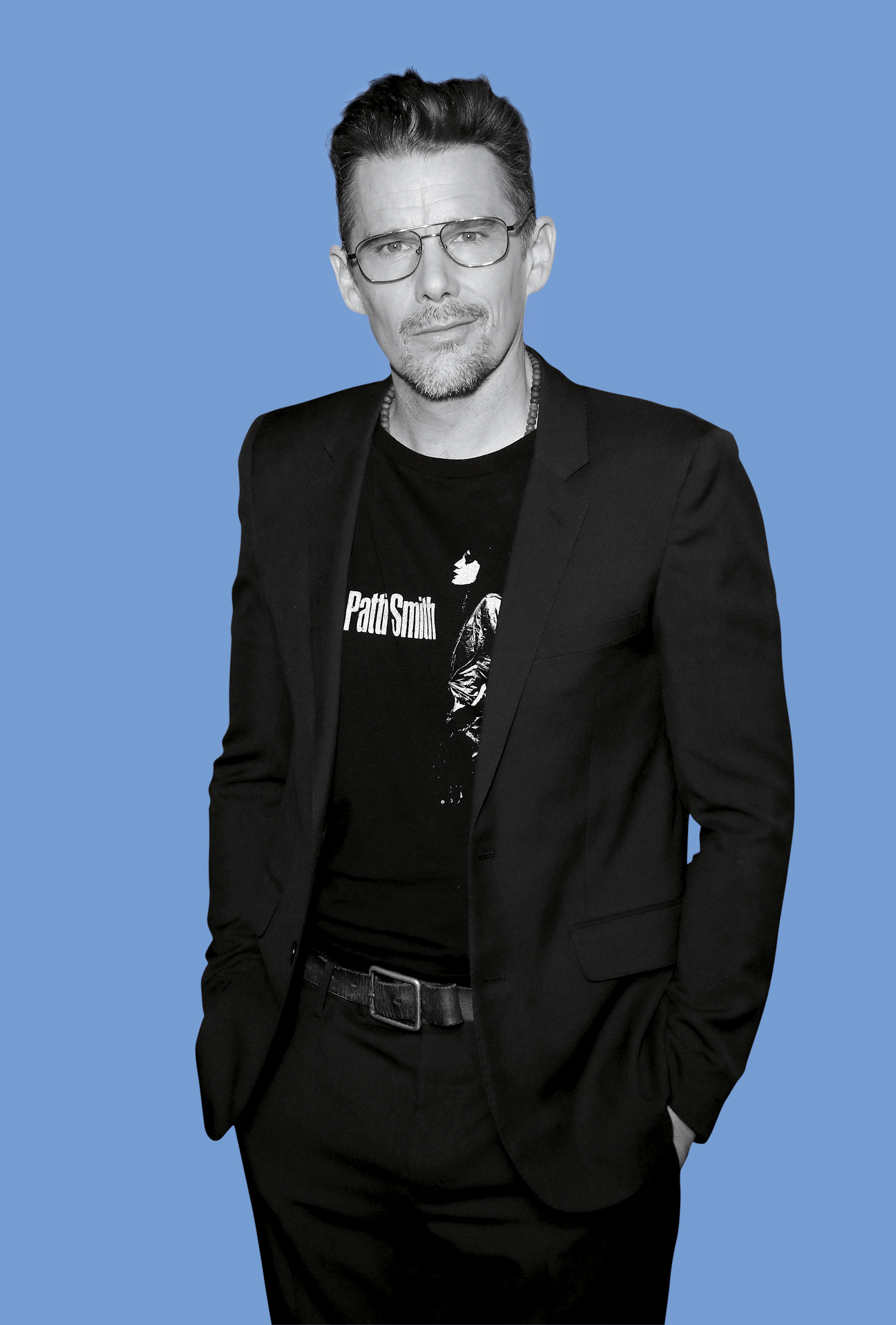
Why did you want to direct Blaze, a movie about country musician Blaze Foley?
The trouble with most music biopics is that the subject is always wildly famous. And in real life, 98% of musicians are met with indifference. I was more interested in Blaze’s life. There was no place for him in the commercial world.
Did Blaze help you work through your own views about how the pursuit of fame can be destructive?
Absolutely. A lot of Blaze’s music grew out of love for his wife. But later he drew on self-destructive behavior. Both of those experiences can create good art, but one is drawn from healthier water, and one is drawn from a poisonous well. And I’ve met so many people in my life who are unable to accept happiness.
Your new movie Juliet, Naked, like Before Sunrise and its sequels, presents a realistic relationship. What draws you to that type of story?
You do society a disservice by filling up the airwaves with phony ideas of what romantic love looks like. In the Before trilogy, we really tried to make the most romantic film possible that doesn’t have one lie in it. That was the appeal of Juliet, Naked to me too.
What do you make of the state of romance in film?
Audiences are confused about what they want from the masculine-feminine dynamic. Romances have long played on stereotypes that people are uncomfortable with now. I think one of the reasons people have enjoyed the Before movies is that they don’t have a masculine or feminine point of view–Julie [Delpy], Rick [Richard Linklater] and I are writing those together. Most romantic movies have a feminine perspective–Sleepless in Seattle or When Harry Met Sally–and then 90% of movies are made through the male gaze.
You recently played a priest who has an existential crisis about climate change in First Reformed. Did that character affect how you think about the world?
[Writer-director] Paul Schrader said to me, “The best films start as you’re walking out of the theater.” What I love about First Reformed is it doesn’t provide easy answers. It doesn’t tell you how you’re supposed to feel about death or climate change or faith. But it engages you to ask the questions.
Is that rare in the scripts you see?
In my lifetime, there have been fewer and fewer movies that challenge you. Movies are doing the work for us. They tell us when our heart is supposed to pound because of the music cue, or the light hits the tear glistening in the corner of an actor’s eye just the right way.
Schrader says he cast you because the lessons of life show on your face. Has aging changed the roles you play?
People whine about getting older. But I used everything I’ve learned from years of acting to direct Blaze. And First Reformed was the best part I’ve ever had.
How do you maintain a long career?
I never try to do one type of movie. If you’re going to have a long career making movies, you have to love it all–comedy, horror, tragedy. But you also have to let your successes go in the same way you let go of your failures. It’s still hard for me. I get a script that says, “Eddie, age 19, skateboards down the street,” and I think, That’s my part, because those are the parts I read when I was starting out. But no, Eddie skateboards home and gets a sandwich from his dad, “mid-40s, ruffled, struggles to find the peanut butter.” That’s me now. A lot of people wake up and say, “Where did the time go?” As an actor that doesn’t happen. You’re constantly made aware of where you are in your life. If you hold on too tight to any one part, you atrophy.
More Must-Reads from TIME
- Cybersecurity Experts Are Sounding the Alarm on DOGE
- Meet the 2025 Women of the Year
- The Harsh Truth About Disability Inclusion
- Why Do More Young Adults Have Cancer?
- Colman Domingo Leads With Radical Love
- How to Get Better at Doing Things Alone
- Michelle Zauner Stares Down the Darkness
Write to Eliana Dockterman at eliana.dockterman@time.com